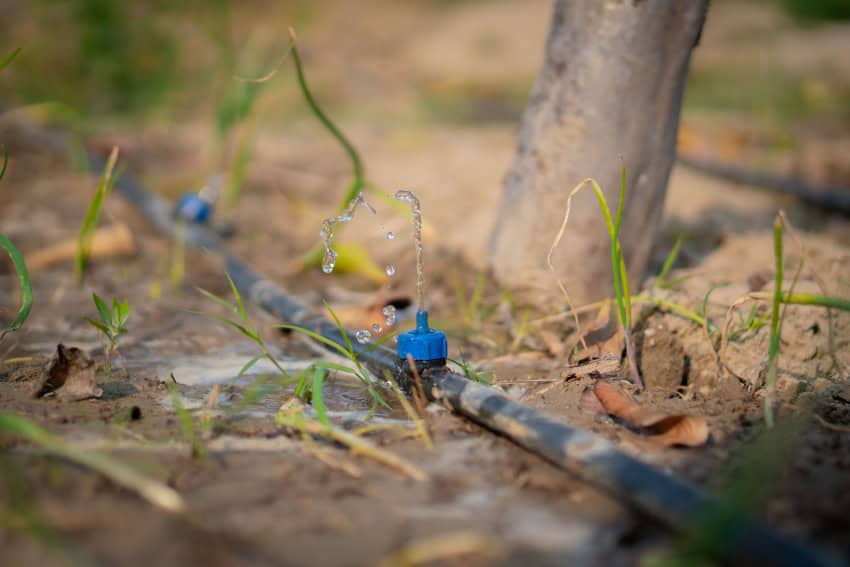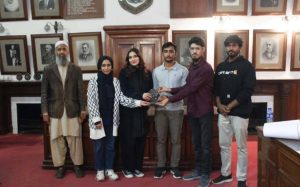Every year since 1993, World Water Day is celebrated on March 22nd; and the theme this year, “Valuing Water” circles around the environmental, social, and cultural value people place on the water. Water is a key resource for the livelihood of people and sustainable development for any economy. The importance or value of water varies for everyone; let’s explore what it means for an agrarian economy like Pakistan.
The agricultural sector is the largest user of water resources in Pakistan. The water supply in Pakistan depends on a single source, the Indus basin, to meet most of the country’s water demands; and thus, its availability and efficient use form the basis of any strategy aimed towards ensuring sustainable food security and long-term economic growth. However, water is a key environmental challenge Pakistan faces today. On the supply side, its availability in the country is limited, volatile, mismanaged, and faces additional significant risks from increasing pollution and climate change conditions. On the other hand, demand for water is inelastic and ever-increasing on account of the rapidly growing population. As a result, an imbalance between supply and demand poses water challenges across different sectors throughout the country.
Experts/studies suggest that water wastage in the agriculture sector is due to inefficient irrigation technologies. The sector’s growth is dependent on the production of the four cash crops (cotton, sugar, rice, and wheat) which rely heavily on water. Pakistan is an agrarian economy with more than one-third of the national livelihood depended on it. The agriculture sector that has a contribution of about 19% to the overall GDP consumes more than 90% of the water resources with associated 50% wastage. Because of poor irrigation practices and outdated crop management techniques, the water losses are significantly high when compared to any other sector. The World Bank estimates that the four major crops (identified above) use nearly 80 percent of water resources and generate less than 5 percent of the GDP, which is around $14 billion per year.
What is required, is to build the capacity and enhance the capability of farmers to adopt efficient irrigation technologies and agronomic practices. For instance, drip irrigation is one of the modern irrigation techniques that involves dripping water right onto the soil at low rates. Thus, using less and precisely the required amount of water.
In comparison, a flood irrigation system that farmers frequently use wastes a lot of water. There is a need for increased investments in adopting innovation in the agriculture sector. This is where the corporate sector can play its role as a water steward. The bottom line is to create meaningful partnerships to ensure sustainable water consumption (onsite and offsite) and proper wastewater management.
Spearheading water stewardship in Pakistan with its stakeholder inclusive approach, Nestlé Pakistan launched its Caring for Water (C4W) – Pakistan initiative. It uses collective action approach to sustainably use the country’s water resources and is also aligned with the United Nations Development Goals, SDG 6 on Clean Water and Sanitation, and SDG 17 on Partnerships for the Goals.

Water is important for the company at every stage of food production i.e., from the farm until it is consumed by the users and it ensures that all its products are made in a way that responsibly stewards shared resources like water for future generations. And to do this, Nestlé Pakistan not only makes efforts in its factories to reduce, reuse and recycle water but also engages with partners and communities outside its fence to ensure the sustainable use of this precious and shared resource.
The C4W-Pakistan has three legs; (1) Factories: where the company undertakes many projects to ensure in house efficiencies i.e., reduce, reuse, and recycle water along with the implementation of the Alliance for Water Stewardship (AWS) Standard across all its four sites in Sheikhupura, Islamabad, Kabirwala and Port Qasim. It has also undertaken the WASH (Water, Sanitation and Hygiene) Pledge covering more than 4000 employees across the country.
(2) Communities: where Nestlé Pakistan has established 6 Safe and Clean Drinking Water Facilities across all its operational sites providing access to safe and clean drinking water to about 60,000 people every day. In order to create a positive impact in the community, it also creates awareness about the responsible use of water among school children and has educated 30,000 children by training 200 teachers in 30 schools in 2020.
(3) Agriculture; Nestlé has partnered with the Government of Punjab to facilitate farmers by helping them install a drip irrigation system on 152 acres in Punjab. In similar partnerships with the Pakistan Agricultural Research Council (PARC) and the University of Veterinary and Animal Sciences (UVAS) it has established sites that reflect best farm practices and serve as a training hub for researchers and students. Together with its partners, Nestlé has saved 428 million liters of water by setting up drip irrigation. Nestlé has established lighthouses across Punjab to educate the farmers about the benefits of using modern irrigation practices that not only conserve water but also ensure improved yield. Such partnerships/projects need to be scaled up country-wide.
The company has also partnered with the Center for Water Informatics and Technology at LUMS and worked to develop low-cost soil moisture sensors. It is another effort to help farmers precisely identify areas that need irrigation with the right amount of water. Initially piloted at three pilot farms; these sensors have been scaled up to 25 farms until now with a planned scale up in the coming years. These water sensors are estimated to help reduce water usage by 12%.
Water is a shared resource and it requires shared responsibility across all sectors. No single sector can do this in isolation. This is why partnerships are key to create a long-lasting impact. The business case of Nestlé Pakistan is exemplary in this regard. Having the right skills and resources, the corporate sector can play an integral role in enhancing the capacity of other businesses or sectors such as the agriculture sector which needs support and handholding. This will not only address the shared water challenges but also ensure food security and livelihood for many attached to the agricultural sector.














